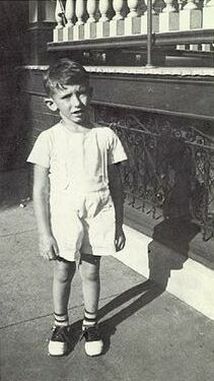|
For the indigo child, what's worth going for are those qualities of life which, when shared, will bring out that same sense in and for others. And, being a indigo child, he doesn't even have to go for them: he's already being them, and he already knows he's being them with an innocent authority which cuts to the chase and gets everyone to sit up and take notice. Even though they may not be exactly sure what it is they're sitting up and taking notice of, people experience their consciousness raised around the indigo child.
But eventually the indigo child will bow to the ways of the world which grind into him he's not perfect. He'll learn (Man! He ... will ... learn!) he must vacate his calling if he's to get along in life. He'll be convinced (by those who know no better) he can't make anything disappear. And with that, he'll begin a time of endarkenment - the lost years.
Then, more sooner than later (and certainly much sooner than for most - in fact, lifetimes sooner than for most if you subscribe to the Buddhist notion of reincarnation), the indigo child's indigoness will triumph and come through, first to the indigo child so quietly and so intimately and so gradually even the indigo child himself will at first not realize anything special is happening. Then it will come through to those with the good fortune to be called to be in the orbit of the indigo child.
When asked whether or not they believe in the indigo child, those people will say no, they don't believe. Instead they will say (as Carl Gustav Jung may have said) they know.
